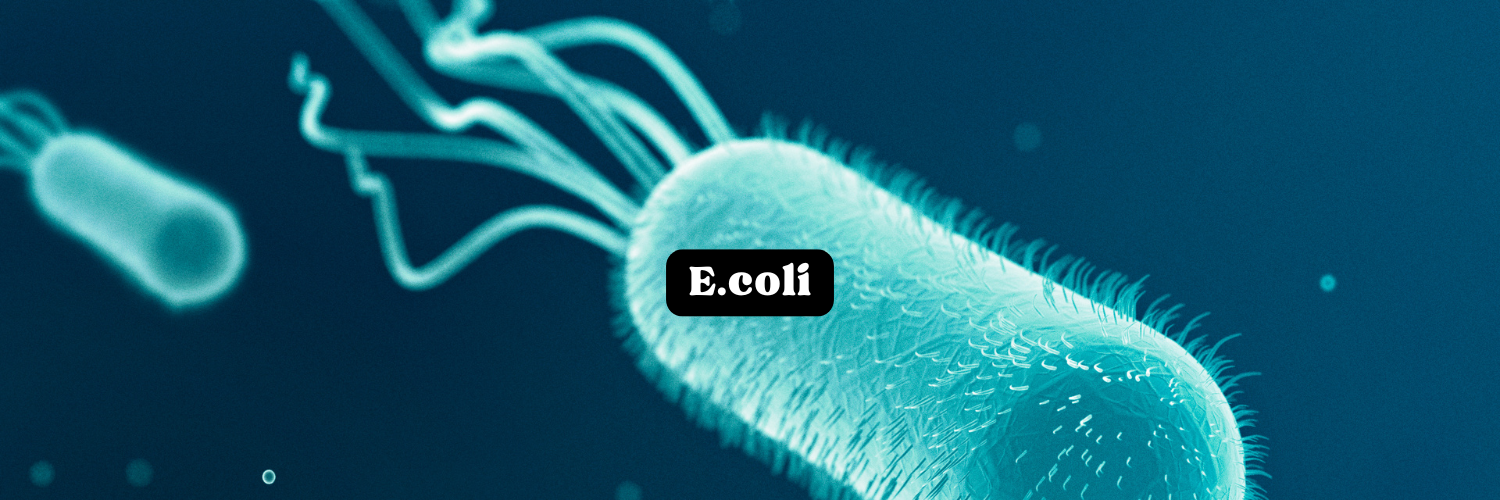What Is Escherichia coli (E.coli)?
Escherichia coli (E. coli) are bacteria that commonly reside in the intestines of warm-blooded animals and humans. Most E. coli strains are harmless and are a normal part of a healthy intestinal tract, aiding in food digestion, vitamin production, and protection against harmful germs. However, some strains can cause illness, including diarrhea and urinary tract infections.
Where Is E. Coli Found?
E. coli bacteria are widespread and can be found in various environments, including:
- The environment
- The intestines of people and animals
- Food
- Water

E. Coli Infections And Symptoms
People can become infected with E. coli by coming into contact with the bacteria. This can occur through:
- Person-to-person contact
- Consuming contaminated food or water
- Contact with animals
- Contact with contaminated environments
Certain groups are more susceptible to infections:
- Children younger than 5
- Adults 65 and older
- People with weakened immune systems
- International travelers
Symptoms of E. coli gastroenteritis include:
- Diarrhea, which is often watery and sometimes bloody
- Stomach pains and cramps
- Loss of appetite
- Low fever
- Nausea and vomiting
If E. coli infects the urinary tract, symptoms may include:
- Abdominal or pelvic pain
- Pain or burning sensation when urinating
- An urgent need to urinate frequently
- Cloudy, foul-smelling urine
While most infections are mild, some can be serious. Contact your healthcare provider if you experience any of the above symptoms.

Prevention And Treatment
Preventing E. coli infection involves several key steps:
- Wash hands thoroughly with warm water and soap, especially before and after cooking, after using the restroom, and after contact with animals
- Follow safe food preparation procedures:
- Do not drink unpasteurized milk or ciders
- Rinse raw fruits and vegetables thoroughly under running water before eating
- Cook meat to a safe temperature, ensuring hamburgers are cooked to 160°F (71°C)
- Avoid cross-contamination by using different cutting boards for raw meat and vegetables
- Refrigerate leftovers promptly
- Avoid swallowing water from lakes or pools
Treatment for E. coli infections varies depending on the type and severity of the infection:
- Mild infections that cause digestive symptoms often may not require treatment. It is important to speak to your healthcare provider and maintain hydration.
- Severe infections, such as UTIs, meningitis, or sepsis, are typically treated with antibiotics.
Conclusion
E. coli is a common bacterium, with most strains being harmless and part of the normal gut flora. However, some strains can cause infections, particularly through contaminated food and water. By practicing good hygiene, following safe food handling procedures, and seeking appropriate medical care, you can protect yourself from infections.
References
Cleveland Clinic: E. coli Infection: Symptoms, Causes, and Treatment
Mayo Clinic: E. coli – Symptoms and Causes
CDC: About Escherichia coli Infection
Wikipedia: Escherichia coli
Government of Canada: E. coli

